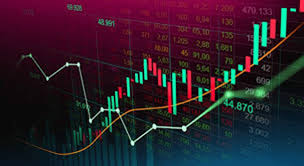Mastering Currency Trading A Comprehensive Guide to Forex Trading 1632352969

Mastering Currency Trading: A Comprehensive Guide to Forex Trading
Currency trading, or forex trading, is one of the most dynamic and accessible financial markets in the world. With a vast number of currencies traded daily, Forex offers opportunities for traders to capitalise on shifting economic conditions. This article will delve into the essentials of forex trading, covering everything from basic terminology to advanced strategies, as well as the necessity of selecting a reliable broker, such as currency trading forex Forex Brokers in Kuwait.
Understanding Forex Trading
Forex trading involves the buying and selling of currency pairs on the foreign exchange market. Unlike traditional stock markets, which are limited to the exchange of company shares, Forex trading facilitates the exchange of one currency for another, helping to determine the value of currencies relative to one another. The forex market is decentralised and operates 24 hours a day, five days a week, making it a highly liquid environment.
Basic Terminology in Forex
Before entering the world of currency trading, it’s essential to understand some basic terminology:
- Currency Pair: A quotation of two different currencies, with the value of one currency being quoted against another.
- Base Currency: The first currency in a currency pair, which is being bought or sold.
- Quote Currency: The second currency in a currency pair, which indicates how much of it is needed to purchase one unit of the base currency.
- Pips: The smallest price move in a currency pair based on market convention. Usually, a pip is 0.0001 for most pairs.
- Spread: The difference between the bid price and the ask price of a currency pair.
- Leverage: The use of borrowed funds to increase the potential return of an investment.
The Mechanics of How Forex Trading Works
The forex market operates through a network of banks, brokers, and financial institutions, facilitating trades between different parties. Traders can operate through brokers or financial institutions that provide access to the forex market, allowing them to buy and sell currencies at varying prices.
How to Trade Forex
To start trading forex, you will need to follow these steps:
- Choose a Reliable Forex Broker: Research and select a broker that is regulated and offers a trading platform that meets your needs.
- Create a Trading Account: Open an account with the selected broker, providing required documentation and funding your account with capital.
- Develop a Trading Strategy: Have a plan in place considering your risk tolerance, trading goals, and preferred trading style.
- Practice on a Demo Account: Before trading live, practice your strategies with a demo account to gain experience without financial risk.
- Begin Trading: Once comfortable, start live trading, applying your strategies and continuously monitoring your performance.
Key Strategies in Forex Trading

Successful forex trading requires the development of effective strategies. Here are a few approaches that traders commonly utilise:
1. Technical Analysis
Technical analysis involves analysing price charts and using various indicators to identify trading opportunities. Traders look for patterns and trends in price movements, using tools like moving averages, RSI (Relative Strength Index), and MACD (Moving Average Convergence Divergence) to inform their trades.
2. Fundamental Analysis
This approach focuses on understanding the underlying economic conditions that can affect currency values. Factors such as interest rates, employment data, inflation, and geopolitical events play a significant role in shaping Forex markets. Traders who employ this strategy must stay informed about global economic news and political developments.
3. Sentiment Analysis
Sentiment analysis assesses the overall sentiment or mood of the market. This involves gauging whether traders are feeling bullish (optimistic) or bearish (pessimistic) about specific currency pairs. Understanding market sentiment can help traders anticipate potential market movements.
The Importance of Risk Management
Risk management is a crucial component of successful forex trading. Even experienced traders can suffer losses, which is why deploying effective risk management strategies is essential. Here are some risk management techniques:
- Use Stop-Loss Orders: Setting stop-loss orders limits potential losses by automatically closing trades when a specific price level is reached.
- Position Sizing: Determine the right amount of capital to risk on each trade based on your overall trading capital and risk tolerance.
- Diversify Your Trades: Avoid putting all your capital into a single trade or currency pair. Diversification can reduce overall risk.
- Keep Emotions in Check: Avoid making impulsive decisions based on emotions. Stick to your trading plan and make decisions based on analysis rather than fear or greed.
The Role of Forex Brokers
Forex brokers play a vital role in facilitating trading activities. When choosing a broker, consider factors such as regulation, trading platform, available currency pairs, fees, and customer support. A reputable broker can provide the necessary tools and resources to enhance your trading experience, along with a safe environment to execute trades.
Conclusion
Currency trading in the forex market presents opportunities for both new and experienced traders looking to diversify their investments and capitalise on global economic events. By understanding the basics, developing solid strategies, and managing risk effectively, traders can set themselves up for success. In this fast-paced market, continuous learning and adaptation are key to evolving with the changing landscape of currency trading.
Leave a reply